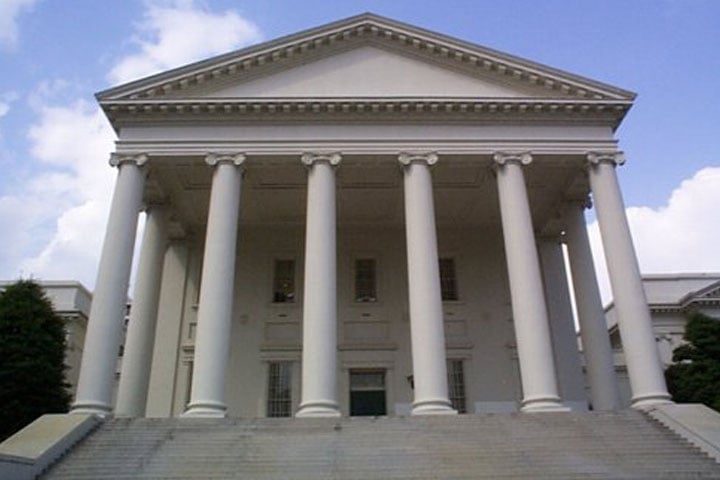
VPLC 2013 General Assembly Review
Friday, March 15th, 2013
With your support, VPLC’s advocates shepherded through some remarkable legislation in the 2013 General Assembly session. Their work is not over — many bills are awaiting the Governor’s signature, and a veto session will follow. But the following bills and budget amendments are on track.
The biggest project in the history of the VPLC is the proposal to expand Medicaid to cover persons who live within 138 percent of the federal poverty line. Jill Hanken’s leadership in support of the expansion will continue into next year at least. The current proposal calls for a special legislative committee to oversee certain reforms in how Medicaid is administered in Virginia. The committee would be certified to approve the expansion when it is satisfied with the reforms.
Your support has played a major role in this effort to provide access to health care for up to 400,000 Virginians, with the federal government paying 100 percent of the cost for the first three years. The expansion also would support 30,000 new jobs in the Commonwealth.
Your support also helped make possible legislation that will benefit low-income people in many ways. New laws (pending the outcome of the session) include:
- Persons facing a documented domestic violence or sexual violence situation will be able to terminate their leases early without penalty. This will help victims who fear that their abusers will return to their home and further harm them, but cannot leave without breaking a lease and risking poor credit, a bad landlord reference or a court judgment. The law is expected to avert homelessness among survivors and their children.
- Stalkers can be charged with a class 3 misdemeanor for using electronic devices to track the location of another person, if the device is used deceptively and without consent.
- Domestic and sexual violence victims will have more protection from abusers who are convicted of violating a protective order. A new protective order is entered to safeguard the victim, and the General Assembly this year clarified that the order should remain in place until appeals have been exhausted.
- Domestic and sexual violence victims will continue to receive legal assistance, emergency shelter, counseling and other services through the federal Violence Against Women Act. Congress reenacted VAWA despite sustained opposition in the House. Susheela Varky worked with other advocates statewide to preserve it.
- A person who financially exploits mentally incapacitated persons can be charged with larceny.
- When a parent who has custody of a child is attending an educational or vocational program, judges can take their child-care expenses into account when determining child support.
- The parents of a child aged 14 or older in foster care can get their parental rights restored if certain conditions are met: the child is not placed in a permanent living situation, the parent has solved the problem that led to termination, and the court finds restoration is in the child’s best interests.
- A child living with a close relative who does not have legal custody will be able to attend the local school where the relative resides. Until now, some schools districts have denied admission to children in this situation.
- If a tenant is unlawfully evicted by a landlord who changes the locks or shuts off utilities, a general district court can order the landlord to restore possession and utilities to the tenant.
- “Housing mobility” counselors will be employed in the Richmond area to help tenants who have Section 8 vouchers find housing in safe areas with good schools. The counselors also will work with landlords with eligible properties. The money will come from the Communities of Opportunity Tax Credit program.
VPLC successfully worked against the following:
- Several bills that would have allowed expungement of records of certain misdemeanor convictions and emergency protective orders did not progress. VPLC is concerned that expungement could compromise the safety of domestic or sexual violence victims.
- Attempts to require applicants and recipients of public assistance to undergo substance abuse screenings was rejected by the Senate and left to die in a House committee. VPLC opposed the bill.
Some proposals did not make it through this session, but will be followed in future years. These include:
- A Virginia Vulnerable Adult Protection Act, which would enhance civil penalties against those in a position of trust who use a vulnerable adult’s property or assets for their own purposes, failed to pass.
- A proposed law that would help employees collect wages that are due to them. Wage theft by employers is a continuing problem in Virginia.
- A prohibition on using the criminal process to collect debts. VPLC attempted to amend the law governing when a rent-to-own store can prosecute a customer for failure to return merchandise on demand. Although the General Assembly approved a small change to the law, we feel more changes are needed.
- The Virginia Housing Commission will study a proposal to make it unlawful for a landlord to refuse to rent to someone solely because of the tenant’s income source, such as Section 8 vouchers.
On top of these noteworthy bills, VPLC advocates followed many others, making certain that the interests of low-income people are considered when the legislators tweak existing laws.
Our advocates — Jay Speer, Jill Hanken, Christine Marra, Kathy Pryor, LaTonya Reed, Susheela Varky and Dana Wiggins — deserve salutes for their tireless work. But we all know we cannot do it without you behind us, with your financial support and your interest in laws that treat everyone fairly.
